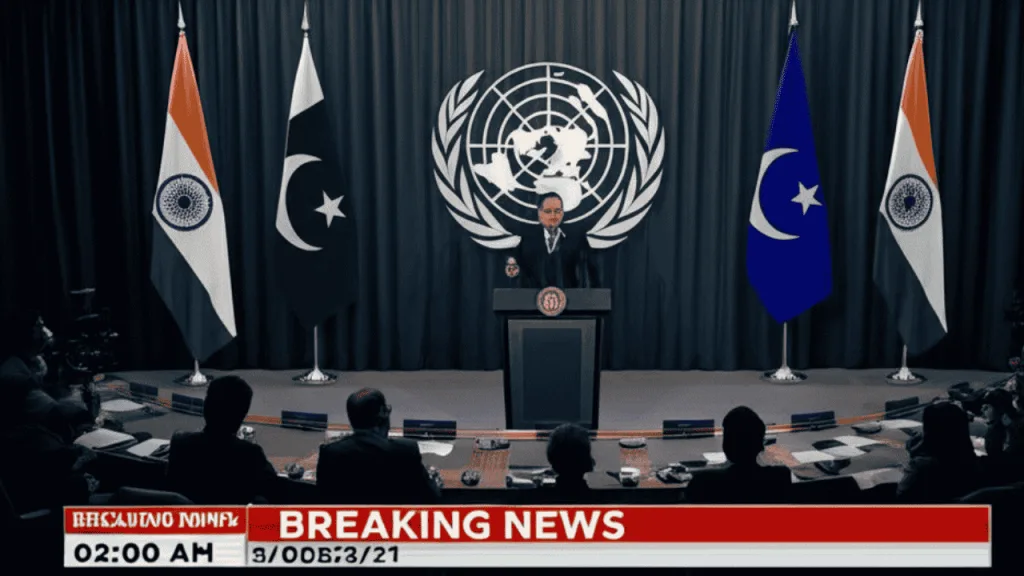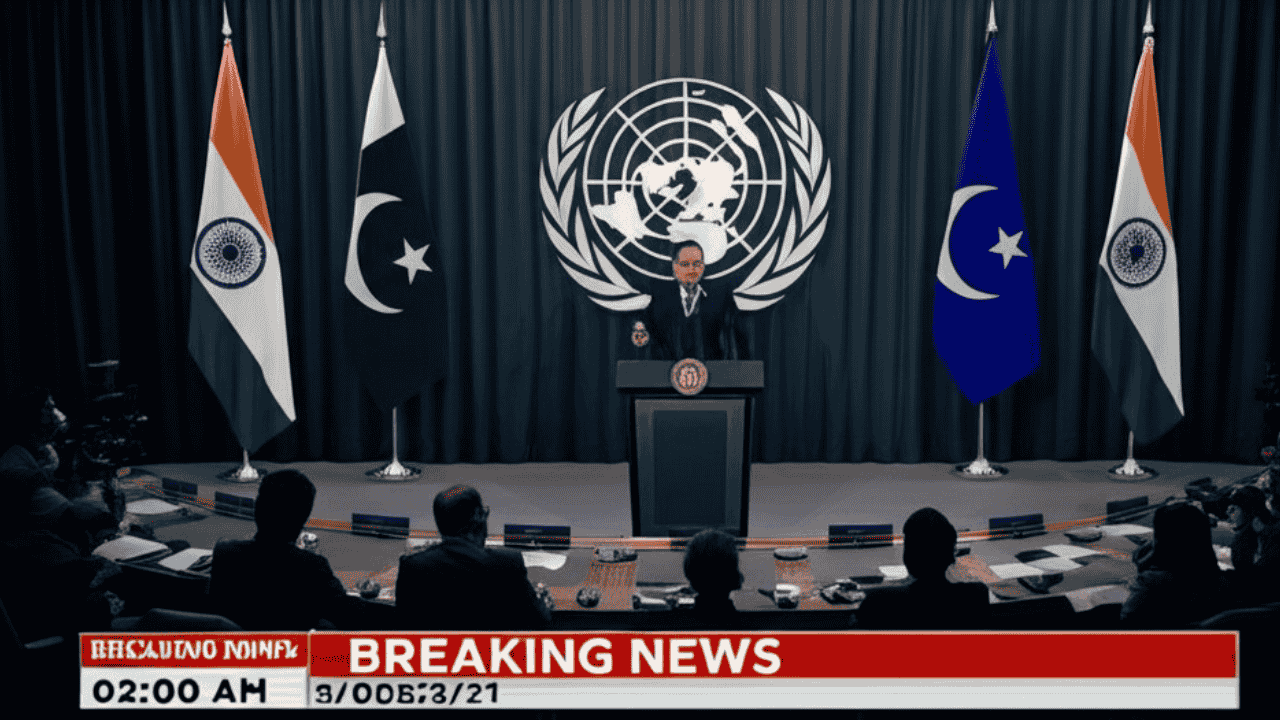New Delhi/Islamabad — A dramatic midnight press conference and a heated United Nations Security Council session have reignited tensions between India and Pakistan in the wake of the deadly Pahalgam terror attack. The unfolding diplomatic episode—marked by claims, counterclaims, and carefully crafted narratives—has gripped both nations and drawn renewed global attention to the volatile India-Pakistan relationship.
Midnight Surprise Turns Into Political Fizzle
At precisely 2:00 a.m. local time, Pakistan’s Information and Broadcasting Minister, Attaullah Tarar, startled international media circles with an unscheduled press conference, triggering speculation of a major development. Some anticipated news of a cross-border escalation or retaliatory strikes. Instead, the address—lasting barely two and a half minutes—delivered what many viewed as more alarm than substance.
Tarar claimed that Pakistan had intercepted credible intelligence suggesting India was preparing for a military strike within the next 24 to 36 hours. He warned that any such move would be India’s sole responsibility and reiterated Pakistan’s call for an independent investigation into the Pahalgam attack, which left multiple security personnel dead earlier this month.
The anticlimactic announcement sparked frustration, even among Pakistani citizens. Social media in both countries buzzed with reactions, memes, and criticism, with many calling the address “theatrical” and “a waste of international attention.”
Security Council Statement Spurs Diplomatic Victory Lap
Just hours before the press conference, Pakistan had declared what it framed as a major diplomatic win at the United Nations. Following the Pahalgam attack, the UN Security Council issued a joint statement condemning the violence—but notably omitted any reference to the “The Resistance Front” (TRF), a group linked to Lashkar-e-Taiba that had initially claimed responsibility for the attack.
According to Pakistani Foreign Minister Ishaq Dar, Islamabad successfully lobbied to block TRF’s name from the final text. He claimed that while the original draft included a mention of the group, Pakistan refused to endorse it, leveraging its position as a non-permanent member of the Security Council. In a rare show of influence, Dar said Pakistan withstood pressure from global powers—including India’s allies, the United States, United Kingdom, France, and Russia—all of whom hold veto power on the Council.
Dar celebrated the omission as a diplomatic triumph, stating, “Pakistan stood firm against immense pressure. The world had to listen.”
The episode sheds light on the intricate workings of UN diplomacy: even a non-permanent member can stall consensus, compelling the Council to revise its language to secure unanimity. For India, the absence of TRF’s name is seen as a lost opportunity to formally internationalize the link between cross-border terror and Pakistan-based militant outfits.
Shahid Afridi Sparks Another Row
Meanwhile, former Pakistani cricket captain Shahid Afridi found himself embroiled in controversy after comments criticizing the Indian Army and suggesting the Pahalgam attack was a false-flag operation. In response, Indian cricketer Shikhar Dhawan lashed out on social media, invoking past conflicts including the 1999 Kargil War and urging Afridi to focus on his country’s development instead of “mockery.”
Afridi fired back with a tweet showing himself in military fatigues holding a cup of tea, captioned “Come, I’ll serve you tea”—a pointed reference to the 2019 Balakot airstrikes and the capture of Indian pilot Abhinandan Varthaman, whom Pakistan famously offered tea before returning him. The hashtag #FantasticTea, a mocking nod to that incident, quickly trended across social platforms.

UN Chief, Punjab Alert, and Military Readiness
In a separate development, sources indicate that UN Secretary-General António Guterres reached out to both India and Pakistan to de-escalate tensions. While Pakistan reportedly called on the UN to intervene, Indian External Affairs Minister S. Jaishankar is said to have delivered a firm response, reaffirming India’s right to pursue justice for terror attacks and advising the UN not to “overstep.”
Back home, the Punjab state government has taken pre-emptive action, issuing an advisory to all civil servants to remain reachable 24/7. The move comes amid concerns that, in the event of conflict, Pakistan might attempt to destabilize India’s sensitive border regions through hybrid tactics or localized unrest.
The Bigger Picture
The latest standoff reflects the intricate web of military posturing, diplomacy, and media warfare that defines the India-Pakistan dynamic. Whether or not the claimed 24–36 hour window materializes into military action, it is clear that both nations are engaged in an intensifying information and narrative battle on the global stage.
With shifting alliances, volatile borders, and an increasingly assertive foreign policy posture from both sides, the subcontinent remains on edge.
